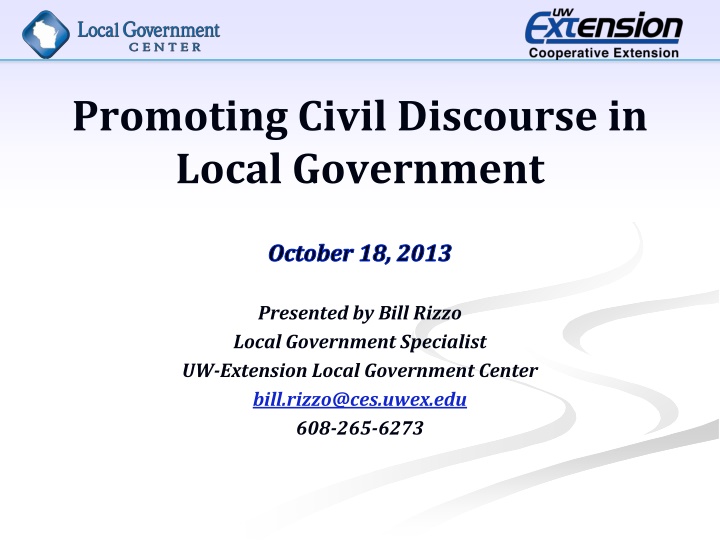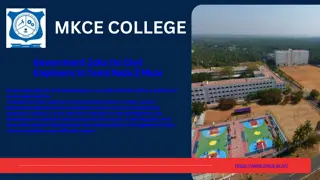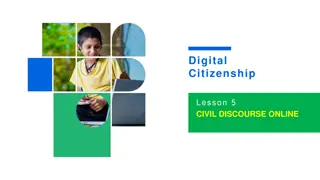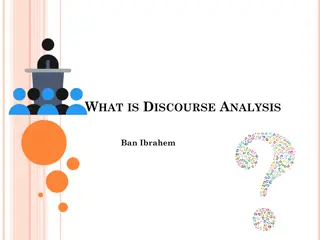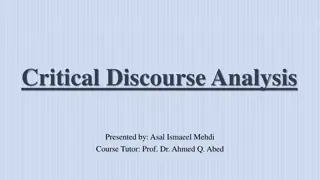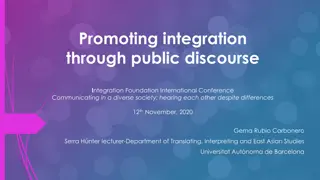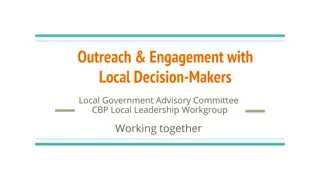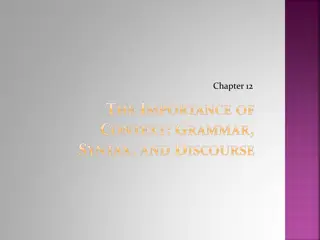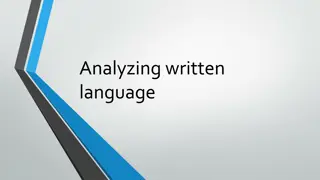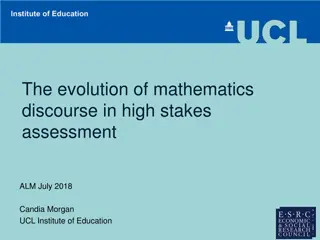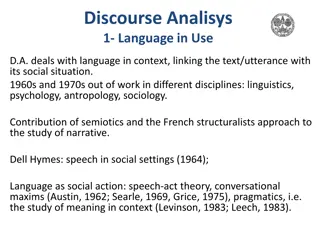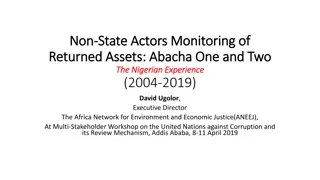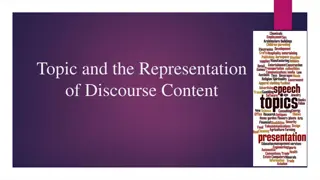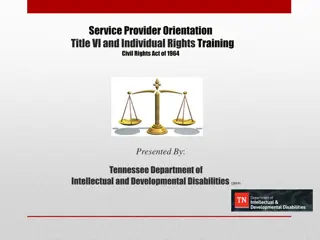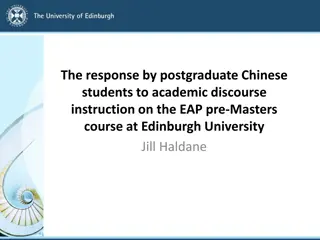Promoting Civil Discourse in Local Government
This session explores the importance of civil discourse in local government, highlighting the challenges, opportunities, and principles of effective civil discourse. Examples and strategies for fostering a respectful exchange of ideas are discussed.
Download Presentation

Please find below an Image/Link to download the presentation.
The content on the website is provided AS IS for your information and personal use only. It may not be sold, licensed, or shared on other websites without obtaining consent from the author.If you encounter any issues during the download, it is possible that the publisher has removed the file from their server.
You are allowed to download the files provided on this website for personal or commercial use, subject to the condition that they are used lawfully. All files are the property of their respective owners.
The content on the website is provided AS IS for your information and personal use only. It may not be sold, licensed, or shared on other websites without obtaining consent from the author.
E N D
Presentation Transcript
Promoting Civil Discourse in Local Government October 18, 2013 Presented by Bill Rizzo Local Government Specialist UW-Extension Local Government Center bill.rizzo@ces.uwex.edu 608-265-6273
Session Objectives Explain what civil discourse is. 1. Make the case for its importance for local government. 2. Outline principles of effective civil discourse. 3. Provide some examples. 4. Some idea sharing. 5.
What is meant by Civil Discourse?
Civil Polite but not friendly, only as polite as a person needs to be in order to not be rude; of, relating to, or involving the general public, their activities, needs, or ways, or civic affairs as distinguished from special (as military or religious) affairs. (Merriam-Webster Dictionary)
Discourse The use of words to exchange thoughts and ideas. (Merriam-Webster Dictionary
Civil Discourse The polite exchange of thoughts and ideas relating to affairs of the public.
Challenges for Local Government Disengagement between citizens and local government A crisis of confidence in government Wicked problems Increasing incivility in public life
Opportunities for Local Government Expand the roles of elected officials Better policy solutions o reduce transaction and opportunity costs for local government o policy solutions that more accurately represent community complexity and diversity. o broader, more sustained support for policy decisions Rebuild the public s confidence & trust in government More knowledgeable, collaborative, engaged citizens
Principles of Effective Civil Discourse Those affected by a decision are involved in the decision- making process. The public's contribution will influence the decision. Decision-makers communicate to participants how their input affected the decision. Recognizes and communicates the needs and interests of all participants, including decision makers.
Principles of Effective Civil Discourse Seeks out and facilitates the involvement of those potentially affected by or interested in a decision. Seeks input from participants in designing how they participate. Provides participants with the information they need to participate in a meaningful way.
Promoting Civil Discourse in Local Government October 18, 2013 Presented by Bill Rizzo Local Government Specialist UW-Extension Local Government Center bill.rizzo@ces.uwex.edu 608-265-6273
